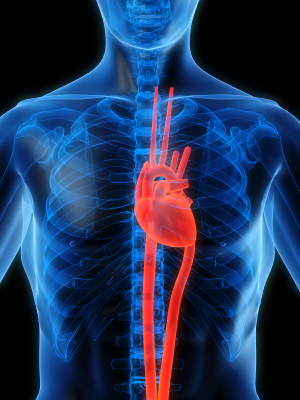- Home
- Our story
- Nutrition Quickies
- Products
- Ingredients
- Articles
- Success Stories
- Contact Us
- Timeless Radiance
- JayLab Pro Prosta-7
- BloodFlow Guardian
- VG-6
- Ultimate Sleep Solution
- Fermented Turmeric
- Collagen Complex
- Ultra-Cleanse Detox
- Krill oil
- Probiotics
- Advanced Joint Support
- Gluco Guardian
- Multi-vitamin (Active Core Complex)
- Renewal for men (T20)
- Protein powder
- Combo-packs
- Login
How Intermittent Fasting Can Help You Lose Weight (and prevent disease)
 You – and everyone around you – are faced with a serious health problem.
You – and everyone around you – are faced with a serious health problem.
And it’s a problem that can’t be cured with medications or the latest quick-fix fitness fad out there.
I am talking about being overweight or obese.
Sure, you may think that having a few extra pounds may not be bad for you…
But what you probably don’t know is that those FIVE or TEN extra pounds may slowly be damaging the healthy cells that are living inside your body.
And this could easily lead to – if left untreated or managed – the development of chronic diseases like diabetes, heart disease, cancers, and others.
But there may be something you can do about it.
And it doesn’t involve any fancy type of diet…
Dangerous weight loss surgery (and all its complications)…
What it does involve is the uses of…
Intermittent Fasting and Health
Have you ever fasted for a day, a few days, or longer?
How did you feel when you did it?
Or did someone tell you that fasting was the hardest thing they did – EVER – and that you would be crazy to try it?
Truth be told, it may not be all that bad.
In fact, fasting has been used for centuries – in many different cultures – for religious ceremonies or even to improve health and longevity.
But that is not the type of fasting we are talking about.
Today’s article focuses on intermittent fasting – or fasting on consecutive or alternating days – and how it affects health, and  more importantly, chronic disease risk.
more importantly, chronic disease risk.
Intermittent fasting focuses on fasting every other day or using the more popular 5:2 approach, meaning you eat well for 5 days and sprinkle in 2 fasting days.
On those days, you would consume water or coffee/tea, keeping the calories at or below 600 calories for men and 500 calories for
women.
According to one study, this type of plan (intermittent fasting) has been shown to be as effective, or even more effective, than calorie restriction alone when it comes to weight loss, improved insulin sensitivity, and other health markers.
But first, here is a quick list of potential benefits associated with intermittent fasting:
• Decrease in fat accumulation in the liver and peripheral tissue
• Increased insulin sensitivity
• Increase nitric oxide production
• Reduction in oxidative stress
• Increase in triacglycerol deposition
• Reduced age-related decline in pancreas tissue
• Increased muscle glucose uptake
• Decrease in skeletal muscle insulin resistance
Now, if you are overweight – or are at risk for it – then listen up.
Being overweight has been linked to a number of different health conditions and changes to the cells in your body.
 You may experience insulin resistance…
You may experience insulin resistance…
You may have changes that happen that alter the way your body digests and uses nutrients…
And, this may predispose you to diabetes, heart disease, and other adverse health conditions.
But here is some good news…
According to a new study, intermittent fasting – although very rigorous – has been shown to cause significant reductions in body weight.
And this may be a good thing for people who are overweight or obese and those who are thinking about gastric bypass surgery to “fix” their weight.
Now, when it comes to people with diabetes, they found that losing weight is much more of a challenge when compared to someone who is free from diabetes.
People living with diabetes may find it hard to lose weight because of blood sugar control issues and the medications they are prescribed for treatment.
Some studies have shown that calorie restriction may be effective for reversing type 2 Diabetes. And, this may be due in part to better pancreatic function and a reduction in fat accumulation in organs and other tissue.
The authors feel that an intermittent diet may be more acceptable to diabetic patients and may improve metabolic parameters such as insulin sensitivity and insulin levels.
They believe that it may give people the same results as bariatric surgery but without the costs, restrictions, and risks associated with the surgery.
However, they also mentioned that a diet like this may be hard to stick with due to blood sugar control issues in the diabetic patient.
Now, if you are overweight (or obese), have type 2 diabetes, and other issues with your health, then you may also be at risk for heart disease.
The authors also believe that it may be beneficial for people at risk for cardiovascular disease.
They pointed to an article where mice – who used an intermittent fasting approach - had lower blood pressure and heart rate similar to what is seen after exercise.
Plus, they showed that intermittent fasting may be cardio-protective, with some of the animals showing resistance to ischemic injury, which they felt may have been linked to an increase in Adiponectin levels.
From their work, they concluded:
“The use of intermittent fasting offers the potential to improve weight loss and enhance the cardiovascular health of overweight and obese individuals with type 2 diabetes and reduces cardiovascular risk. This type of intervention is cost-effective and associated with a low risk of adverse events.”
Intermittent Fasting and You
Intermittent fasting may be the latest and greatest health fad out there.
Alternating days of feeding with days of fasting, may boost weight loss, reduce cholesterol, and improve other parameters of health.
Although this plan may be beneficial to your health, it may not be for everyone. Be sure to speak with your doctor before making dramatic changes to your eating plan.
Now, according to this study, intermittent fasting may reverse diabetes and could also be cardio-protective, therefore reducing not only your weight – but possibly your risk for heart disease and diabetes.
Reducing your risk factors may be one of the best gifts you can give your health!
Are You Over 40 and Tired of Sagging Skin, Lumpy Legs, and Stuck On Belly Fat?
If so, you're in luck...
Over the last two years, I have plunged into the research to determine EXACTLY why people like you are having a hard time losing weight.
And believe it or not, it has nothing to do with what you're currently eating or how much you're exercising.
You see, everything you've been told about weight loss...
May be dreadfully WRONG--and actually making you GAIN WEIGHT instead of losing it. But i have found a solution that could STRIP years of belly fat off your body-without adding a second more to your gym time or have you go for long periods of time without food.
Are you interested?
If so, your answer awaits you on the next page:
References:
Brown JE, Mosley M, Aldred S. Intermittent fasting: a dietary intervention for prevention of diabetes and cardiovascular disease? British Journal of Diabetes & Vascular Disease. 2013 March/April;13(2):68-72. Doi: 10.1177/1474651413486496.



